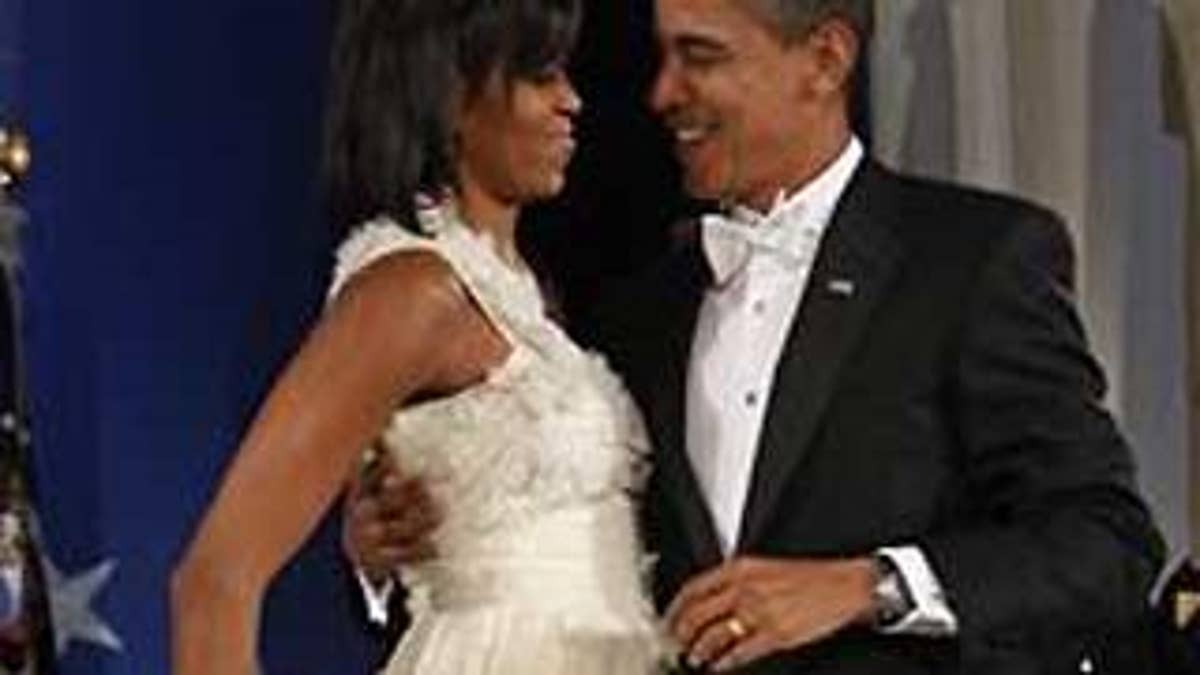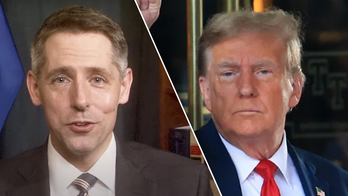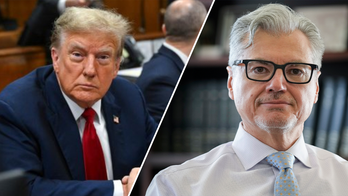
President Obama, on his first full day in the Oval Office, will pivot his attention Wednesday from celebration to the grueling work of securing confirmations for the rest of his Cabinet nominees and determining the way forward in Iraq and Afghanistan.
Timothy Geithner, Obama's nominee for treasury secretary, comes up for his first confirmation hearing Wednesday after an earlier hearing was postponed over questions about tax problems.
And as one of his first orders of business, Obama plans to meet with his team of national security advisers.
But first, Obama will follow in the tradition of prior presidents -- attending a National Prayer Service at the National Cathedral. The service dates back to George Washington, though it's been held at the cathedral since Ronald Reagan's second inauguration. Obama and his wife were also to welcome hundreds of members of the public to a White House open house and is holding a swearing-in ceremony for his confirmed Cabinet members.
Then it's on to the difficult business of running the nation. He is meeting with his economic team to plot the way forward in reinvigorating the economy that has seen 2 million workers lose jobs in the last year and trillions of dollars in stock market savings lost.
Congress already has given him a second installment of financial-industry bailout money, worth $350 billion, and is fast-tracking a massive economic stimulus bill of $825 billion or more.
"Fortunately we've seen Congress immediately start working on the economic recovery package, getting that passed and putting people back to work," he said in an ABC News television interview. "That's going to be the thing we'll be most focused on."
Obama is one of few if any presidents who has seen the stock market drop on his inauguration day, adding a fresh urgency to the economic challenges. Financial stocks, many of them falling by double digit percentages, led the major indexes down more than 4 percent.
The market's faith in the outgoing Bush administration's $700 billion bailout effort was already waning. Many experts believe Obama's administration will have little choice but to pump more money into the banking sector or create an entity to buy banks' soured assets such as subprime mortgages so they will start lending again.
Obama is also dealing with a prickly international scene. The president pledged during his campaign to remove combat forces from Iraq within 16 months of taking office and redirect troops to Afghanistan. He plans to sit down with the head of Central Command, Gen. David Petraeus, at the White House
They and Secretary of Defense Robert Gates, who is being retained from the Bush administration; and Adm. Mike Mullen, chairman of the Joint Chiefs of Staff, will join a teleconference with Gen. Raymond Odierno, the top general in Iraq.
Another likely topic of discussion is a plan to close the Guantanamo Bay detention facility in Cuba. Obama's administration wants to make the closure of the controversial prison a priority.
Since launching his campaign two years ago Obama has pledged to overhaul or improve dozens of domestic and foreign policies and programs. In his address Tuesday, he also stressed his determination to lift America's global image. The more than 1 million spectators on and around the National Mall for Obama's swearing-in Tuesday personified how high a bar Obama's supporters have set for him.
"Expectations are so sky high for him, I think a lot of Americans expect things to turn around in six months," said Larry Sabato, director of the University of Virginia Center for Politics. He said two years might be a more realistic goal for major changes to take place under the Obama administration.
The president cautioned about the challenges ahead in his inaugural address Tuesday. He said the Iraq and Afghanistan wars, the economic crisis, the rising cost of health care and a "far-reaching network of violence and hatred" would test the nation.
"They will not be met easily or in a short span of time," he said. "But know this America -- they will be met."
Obama and his team were planning for their transition to power even before he was elected.
Since then, he's swiftly nominated his Cabinet and named key staff members, and says he's been briefed regularly on pressing foreign policy challenges like the conflict between Israel and Hamas.
The U.S. Senate unanimously confirmed six of his Cabinet nominees Tuesday, just hours after Obama took the oath of office.
But Geithner might still have to undergo some grilling when his postponed hearing comes up Wednesday before the Finance Committee. Geithner was under fire for revelations about his initial failure to pay $34,000 in back taxes while working for the International Monetary Fund.
Lawmakers will determine whether those tax follies will cost him the job of serving as rudder for the nation's unstable economy. But Obama advisers, and even some Republicans, say they don't expect Geithner's nomination will be blocked over the tax matter.
The vote for Hillary Clinton's nomination for secretary of state was also held up until Wednesday over a single senator's objection. But Senate Majority Leader Harry Reid spokesman Jim Manley said Clinton would nevertheless "receive overwhelming bipartisan support."
Among those confirmed Tuesday were Obama's pick for energy secretary, Steven Chu, homeland security secretary, Janet Napolitano; agriculture secretary, Tom Vilsack; education secretary, Arne Duncan; interior secretary Ken Salazar; and veterans affairs secretary Eric Shinseki.




